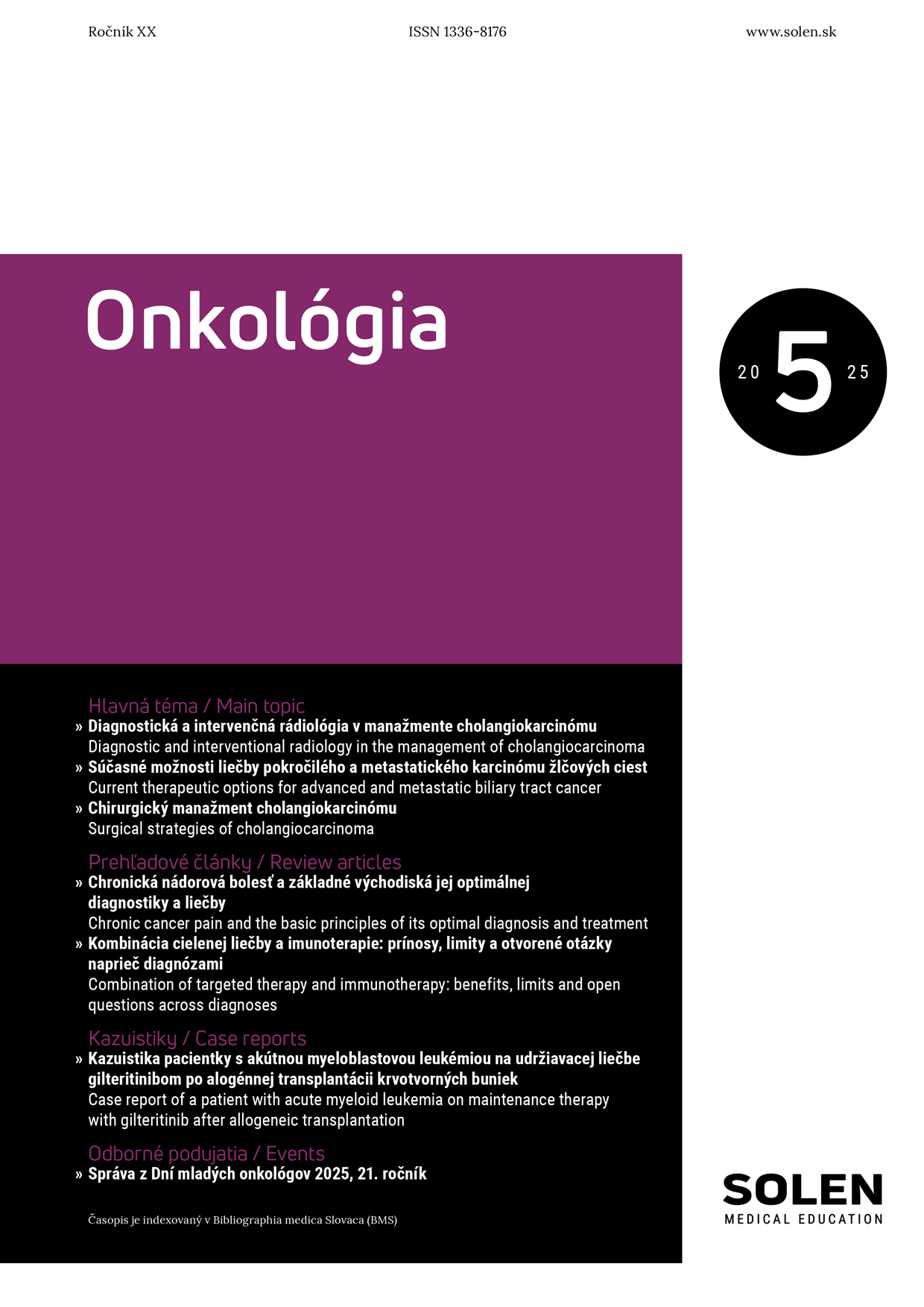Neurológia pre prax 5/2011
Primárne progresívna roztrúsená skleróza – diagnostika, klinické aspekty a liečba
Primárne progresívna roztrúsená skleróza (PPMS) predstavuje približne 10 – 15 % pacientov so sclerosis multiplex. Patofyziológia ochorenia nie je doteraz prebádaná, predpokladá sa odlišný patogenetický podklad ako pri atakovitej forme MS – viac neurodegenerácie, menej zápalu. Súčasné diagnostické kritériá pre definitívnu PPMS zahŕňajú klinickú progresiu trvajúcu minimálne jeden rok, pozitívny MRI nález a intratekálnu syntézu imunoglobulínov triedy IgG a/alebo pozitívnu oligoklonálnu skladbu likvoru. V súčasnosti neexistujú guidelines na liečbu PPMS. Zo širokej plejády terapeutických pokusov nie je doposiaľ favorizovaný žiaden preparát pre nepresvedčivé výsledky klinických štúdií a terapeutické snaženie sa nateraz obmedzuje väčšinou len na ovplyvnenie symptomatiky ochorenia.
Kľúčové slová: primárne progresívna roztrúsená skleróza, neurodegenerácia.
Primary progressive multiple sclerosis – diagnosis, clinical aspects and treatment
Primary progressive multiple sclerosis (PPMS) accounts for approximately 10–15% of cases of multiple sclerosis. The pathophysiology of the disease has not been elucidated yet; a pathogenetic background different from that in relapsing-remitting MS is assumed, i.e. more neurodegeneration, less inflammation. The current diagnostic criteria for definitive PPMS include clinical progression lasting at least one year, a positive MRI finding and intrathecal synthesis of immunoglobulin G and/or a positive oligoclonal banding in the cerebrospinal fluid. Currently, there are no guidelines on the treatment of PPMS. Because of inconclusive results of clinical trials, no single therapeutic agent has been favoured and therapeutic efforts have so far been limited to interfering with the symptoms of the disease.
Keywords: primary progressive multiple sclerosis, neurodegeneration.

















